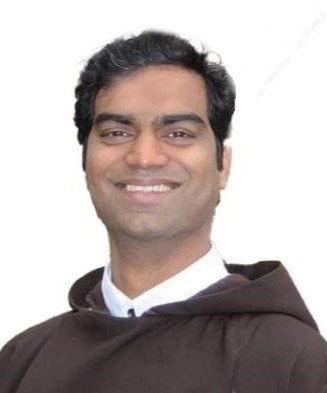When it Comes to Conversion, it is I First!
In one of his daily sermons (on 19 May 2017), Pope Francis said, some people “use rigidness to cover weaknesses, sins, personality flaws, and they use rigidness to rank themselves above others.” The Pope suggested that people who are rigid about their faith tend to live double lives. On another occasion, the Pope said, concealed by rigidity there is always something else! That’s why Jesus uses the word ‘hypocrites!’ “They appear good because they follow the Law; but behind there is something that does not make them good. Either they’re bad, hypocrites or they are sick. They suffer!” he said.
Logs and specks
The gospel of today is still a continuation of the sermon on the plains in the Gospel of Luke that we started listening to two Sundays ago with the Beatitudes (Chapter 6 of Luke). Jesus words as usual are very sharp. They are very straightforward. In today’s language, Jesus’ words could be rendered as, “How can you get the sawdust out of your brother’s eye if you have an electric pole in yours?” It is plain enough that someone blinded by the log cannot help someone who has a speck in their eye. Jesus is pointing to a simple truth as I said in the introduction above, perhaps I can spot certain things in another person’s life precisely because I am guilty of the same sin – in probably a greater capacity. Therefore, before I take on the duty to “admonish sinners” – I need to deal with my own sinfulness!
Here is a story rather well-known in India attributed to Mahatma Gandhi…
A woman walked with her son many miles to come to Gandhi. She was very worried about her son’s health because he was eating too much sugar. She came to Gandhi and said, “Please, sir, can you tell my son to stop eating sugar.”
Gandhi looked at her and thought for a while and finally said, “Ok, but not today. Bring him back in two weeks’ time.”
She was disappointed and took her son home. Two weeks later she made that long journey again and went to Gandhi with her son.
Gandhi simply said to the boy, “You must stop eating sugar. It’s not good for your health, my boy!”
The woman was confused and asked him, “Gandhi, please tell me: why did you want me to wait two weeks to bring back my son, just to say this one sentence.”
Gandhi said, “Because before I could tell your son to stop eating sugar, I had to stop eating sugar first.”
It is said, the boy had such respect for Gandhi that he stopped eating sugar and lived a healthy life.
Let me work on my heart!
Jesus is suggesting that in deeper matters concerning our spiritual lives – in matters that are more than just eating sugar – it might not be so easy just to correct our behavior. The truth is all of us have our logs in our eyes. We need work at a deeper level, at our heart. We cannot appear good just by following the law; but we need to root out what is not good deep within us. We need to deal with the inner conflict within us.
Jesus says, “There is no sound tree that produces rotten fruit, nor again a rotten tree that produces sound fruit. … A good man draws what is good from the store of goodness in his heart; a bad man draws what is bad from the store of badness. For a man’s words flow out of what fills his heart.”
Christianity is a religion of the heart. We need to work at our heart level. This implies a set of movements in our Christian life: from saying prayers to praying; from being right to being good; from looking outward to looking inward!
Last weekend I was facilitating a retreat for a group of youth; they were over thirty 19 to 24-year olds. They asked me several questions about their faith – I thought they were questions about my own faith. They asked a lot of why-questions about the Christian faith according to the Catholic tradition. Deep ones! Their questions demonstrated to me that they are not rebellious, they are just searching. They are not skeptical, but they are in doubt. They are not going to go away from God, but they may go away from institutional Church.
They are looking for a religion of the heart. They are fighting against the rigidity of their own parents and pastors. They are struggling with being authentic while obeying the requirements of the Church.
I found it challenging. Before I could advise them, like Gandhi, I wanted to deepen my own faith. Before I teach them to comply, I wanted to listen – a theme of the Synod 2023. Before I could remove the speck in their behavior, I prayed, I could have the courage to remove the log in my own heart.
Fr. Franco Pereira, S.D.B.


